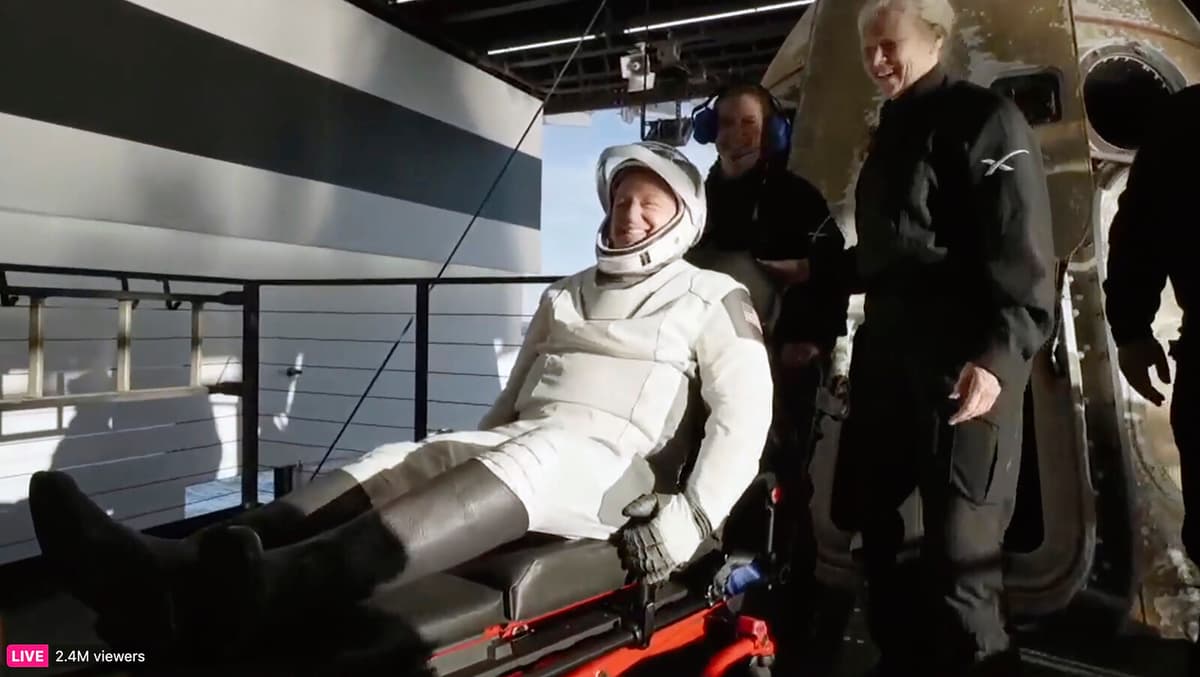The images that have been broadcast around the world show a capsule that appears to be plummeting towards the Earth. The last bit is slowed down by first two and then four parachutes before it gently sails down into the sea.
A little later, smiling astronauts are lifted out of the capsule and rolled away on stretchers, simultaneously waving happily at the cameras.
I'm sure they're extremely happy and euphoric to be back. But their bodies will be very affected, says Lisa Westerberg, professor of experimental immunology at the Karolinska Institute.
Infections
She is researching, among other things, how the body, specifically the immune system, is affected by being in space.
Westerberg says that most people have viruses that lie latent. The so-called T-cells are an important part of the body's defense and keep the viruses in check, but do not function optimally in space. It is not yet fully proven, but the hypothesis is that the lack of gravity makes the cells unable to move normally.
About 50 percent of astronauts have increased infections, both when they are in space and when they return, she says, referring to a classic interview with a sniffling Neil Armstrong from 1969.
According to Rodrigo Fernandez Gonzalo, also a researcher at the Karolinska Institute, one sees significant changes in fluid regulation, weakened skeleton, and atrophied muscles in astronauts as a result of the body not being exposed to the Earth's gravity.
"Practically all physiological systems in the human body are affected by nine months in space," writes Fernandez Gonzalo, specialized in space and environmental physiology, in a comment.
Longer in Space
According to BBC, studies show that longer missions in space of three to six months can result in muscle mass decreasing by up to 30 percent – despite several hours of daily mandatory space exercise. In addition to weaker bones, one also becomes a little longer in space.
When it's restored and goes back, it's going to hurt quite a bit, I think, if I'm being completely honest, says Lisa Westerberg.
For the immune system, it seems to take quite a long time to recover, but more research is needed, according to Lisa Westerberg. Building up muscles is likely to go faster.
We've done a study where people lie in waterbeds on Earth. After lying there for 21 days, it takes about a week before the test subjects can walk again, she says.
Butch Wilmore and Suni Williams were sent up to the International Space Station (ISS) thinking they would stay there for eight days. Nine months later, they are back on Earth.
Even though the launch with Boeing's new spacecraft Starliner in June last year went well, the spacecraft got far from a passing grade.
Technical problems meant that the US space agency NASA decided that the two astronauts' return journey for safety reasons had to wait, and the spacecraft had to return to Earth without a crew. The astronauts' return journey has since been postponed several times.
On Tuesday, the duo landed together with two other astronauts in the capsule Crew Dragon from Elon Musk-owned Space X.






